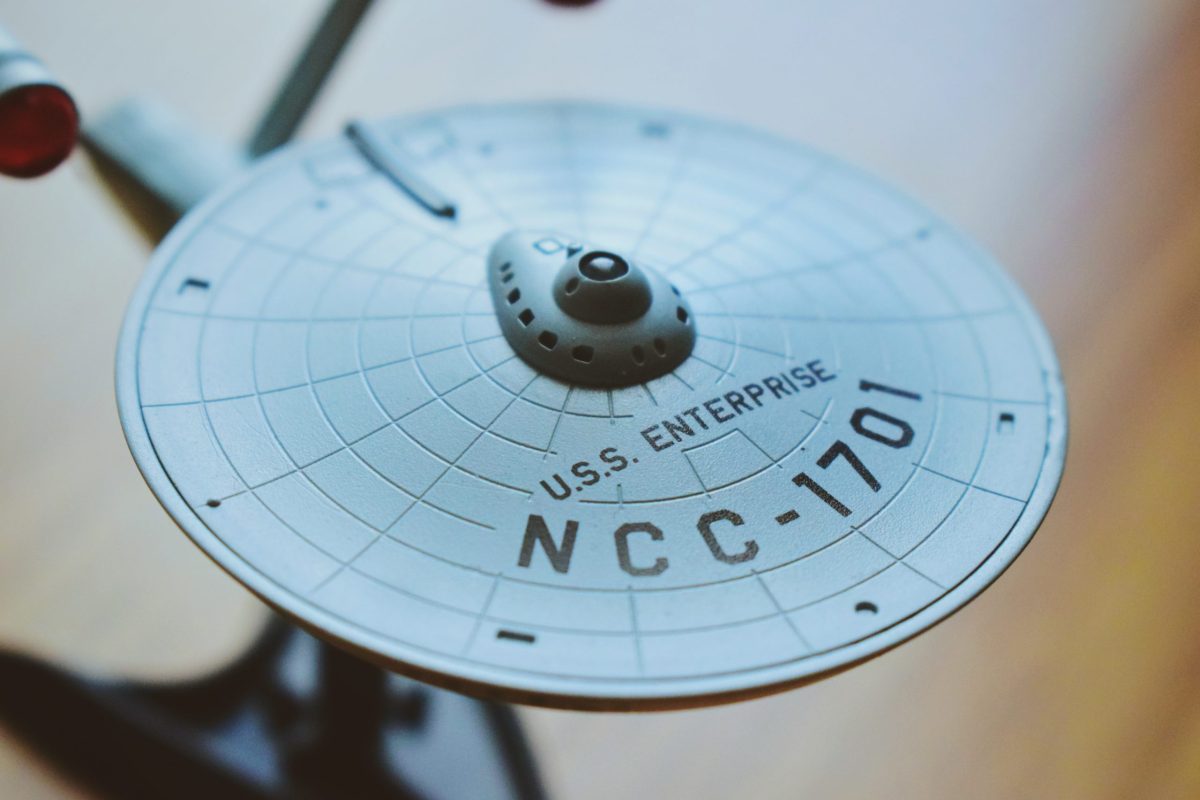The Star Trek franchise has been producing many different television series dating back from 1966, surely with more to come. As a long-time fan of the Star Trek franchise, I asked the question, which series has been the best? What follows is, in my opinion, a list of Star Trek series ranked from worst to best.
- “Discovery” (2017–present)
- “Star Trek: Discovery” takes last place on this list, with a 0/10 rating. The show is apparently a prequel to the original series, although it is hard to tell based on the content of the show. It does not seem like anyone involved in the creation of this show cares about continuity, character development or good storytelling. This show would be awful even as a standalone science fiction show and would have never been made if it didn’t have the Star Trek brand to lean on. If you are looking for a more modern take on Star Trek, watch The Orville, a great show that is Seth Macfarlane’s attempt at making Star Trek without having the rights to it.
- “The Animated Series” (1973–1974)
- “Star Trek: The Animated Series” receives a 2/10 rating. The series is not something I would recommend to anyone. It ran for two seasons and the cast of the “Original Series” reprised their roles in animated form. I don’t consider it canonical and neither did Star Trek’s creator Gene Roddenberry. Some Star Trek writers that followed “The Animated Series” treated aspects of the series as canonical, but it is not necessary to watch this to understand anything Star Trek. I watched it out of desperation once I had consumed all other available Star Trek but it was not worth watching.
- “Voyager” (1995–2001)
- “Star Trek: Voyager” follows the story of Captain Janeway and the starship Voyager after the ship and crew is stranded 70,000 light years from Earth and the resources of the Federation. This show is more redeeming than previously mentioned series, receiving a 5/10 rating. The characters are interesting, the writing is sufficient, however this show suffered from executive meddling that bound the writers to rules that made the show boring, repetitive and frustrating. Although I do love Captain Janeway, and the Tuvix episode is classic, I find “Star Trek: Voyager” very difficult to rewatch.
- Enterprise (2001–2005)
- “Star Trek: Enterprise” is a prequel to “The Original Series,” set approximately 100 years before the adventures of Captain Kirk, receiving a 6/10 rating. “Enterprise” isn’t brilliant television, but what it did do well was explaining how the Star Trek future that we know from “The Original Series” and “The Next Generation” came to be. It has kind of a cheesy opening theme song and the third season is clearly a reaction to the events of 9/11, but if you can get past that it’s at least watchable. The characters are generally kind of plain, with the exception of Doctor Phlox. I think this is a fine series for what it is, just nothing amazing.
- “The Original Series” (1966–1969)
- “Star Trek: The Original Series” is undoubtedly important to the history of science fiction in television and film and was progressive for its time and broke many barriers, receiving an 8/10 rating. Although there is no shortage of goofy episodes, Captain Kirk and his crew are faced by plenty of solid philosophical situations. This show is really about the interactions and disagreements between Kirk, Spock and Bones. My personal favorite episode is Balance of Terror, with an ending I could recite line for line. “The Original Series” is almost closer to fantasy or horror instead of science fiction. I would recommend “The Original Series” to anyone who is a fan of the original “Twilight Zone.”
- “The Next Generation” (1987–1994)
- “Star Trek: The Next Generation” set the standard for me when it comes to science fiction. Although “The Next Generation” had a rough first season, it found its footing relatively quickly. The best episodes are those that are just set up for Captain Picard to give a grand philosophical speech about morality and ethics. Both the main cast and several recurring supporting characters like Data, played by Brent Spiner, and Guinan, played by Whoopi Goldberg, are are well fleshed out as well. The show’s weakest point is one of the recurring villains, the Borg. The Borg doesn’t work as a villain because they don’t behave in any relatable human way. “The Next Generation”’s greatest strength is finding logical, philosophical, and moral solutions to problems and none of those can apply to the Borg. Overall, I would recommend “Star Trek: The Next Generation” to anyone who is interested in watching Star Trek but is not sure where to begin.
- “Deep Space Nine” (1993–1999)
- “Star Trek: Deep Space Nine” takes place starting at the tail end of “The Next Generation” on a space station near a planet called Bajor, recovering from a gruesome occupation that lasted more than 50 years. Though the setting may seem humble compared to other shows which explore the galaxy, it has the grandest story that is told over the course of seven seasons, easily taking a 10/10 rating. “Deep Space Nine” is the closest look we get at fully fleshed out alien species like the Ferengi, Cardassians, and Klingons that we saw glimpses of in the other shows. All main characters develop and grow as people throughout the show and even minor characters are wonderfully complex. The series is able to give meaningful wartime commentary in a deep and complex way that would not be possible if it were not for the show’s relatively static setting. I would recommend the episode “Duet” in the first season, which is a beautiful tragedy and a great example of what Star Trek: Deep Space Nine has to offer.




























